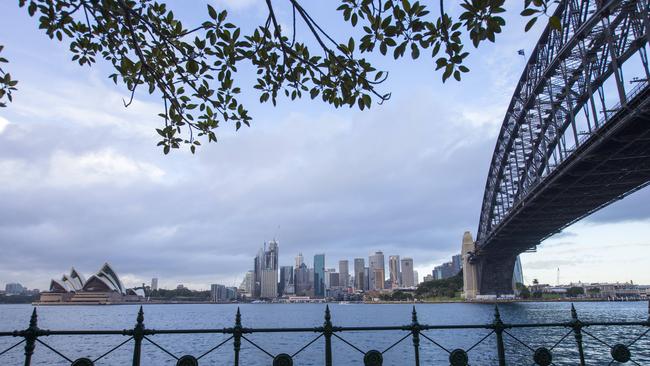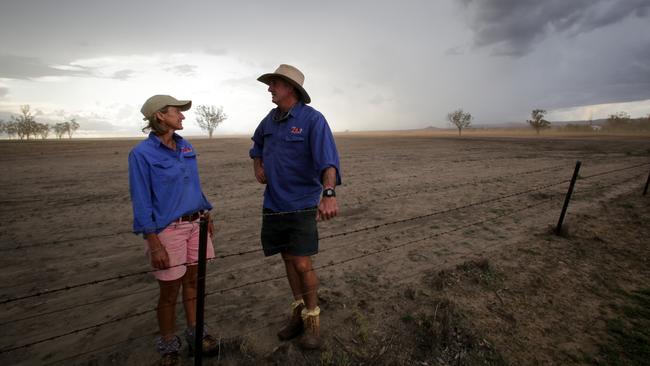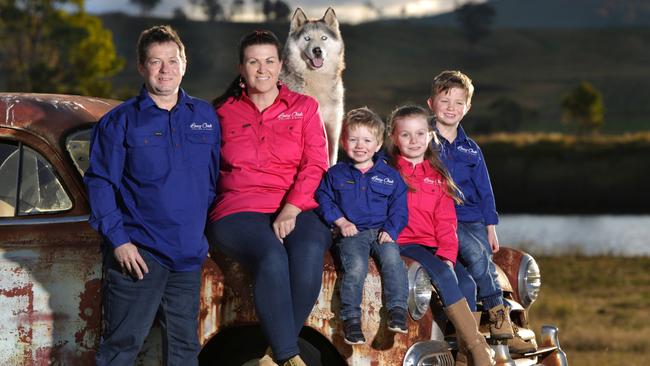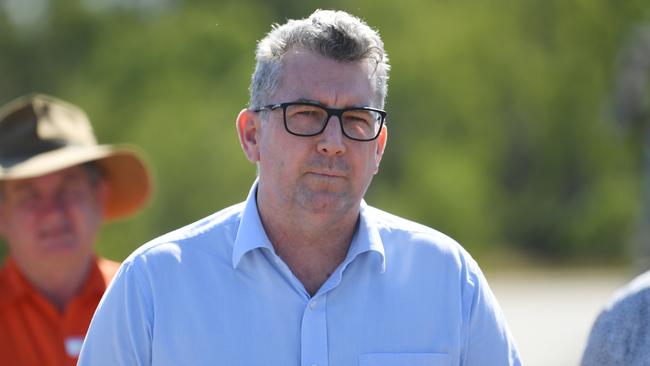Australian farmers are struggling to afford water as foreign investors target quality licenses
China is now the single biggest foreign owner of Australian water, with local companies increasingly having their hands tied in the battle with overseas competitors.
NSW
Don't miss out on the headlines from NSW. Followed categories will be added to My News.
- NSW businesses told: ‘Don’t let in Melburnians’
- Health Minister blames BLM protesters for COVID-19 spike
China is now the single biggest foreign owner of Australian water, as local farmers struggle to compete with overseas companies pushing up prices.
With 10.5 per cent of the nation’s available water foreign owned, China is responsible for the largest investment holding at 1.9 per cent, followed by the US and the UK.
China grew its share of water by 3 per cent in 2018-19, taking it to a total of 756GL — about 1½ Sydney Harbours — which is mainly used for agriculture, a new report reveals.
But concerned farmers warned the modest increase does not reflect the true influence of foreign ownership in the $2 billion water market, as overseas companies are targeting higher quality licences that have a greater value.
The latest Foreign Ownership of Water Entitlements report shows almost a third of surface water in the profitable northern Murray Darling Basin was foreign owned in 2018-19, a 32 per cent jump on the previous year.
All of Australia’s water resources are divided into different types of licences, which over the years have been bought by major companies, small farmers and governments. If a farmer needs to buy water, they can bid for it in a public auction or make an offer in a private sale.
Foreign-owned companies often buy water licences with land to make money from crops.

MORE NEWS
Victoria could jeopardise NZ travel bubble hopes: CMO
Premier brushes off festering Liberal branch tensions
Defence Force brass exclude men to attract more women
However it is legal for companies to buy just the water licence, which they can then hold on to and resell to the highest bidder when demand increases, such as during a drought. More secure licences, which guarantee the owner a certain amount of water even when supply is low, are worth more money and are seen as particularly attractive investments.
NSW Farmers’ Water Taskforce chair Xavier Martin said the state’s farmers were increasingly being outbid in the water market by foreign companies.
“When farmers in NSW put their hand up to bid for water, they’ve had to pay $1.30 to have $1 to spend on a licence when taxes are factored in,” he said.
“Yet they’re competing against people that are just paying $1 with no or extremely low taxes.”

Overseas ownership of water in the Murray Darling Basin jumped 16.6 per cent in the year to June 2019, which the new report attributed to “buys and sells” in the system as well as a redrawing of boundaries. But Mr Martin said it was “quite obvious” to farmers foreign investors were targeting land with quality soil and more secure and reliable water licences.
Mudgee vineyard owner Paula Hanson said her family operation was often priced out of the water market.
“Prices can be very volatile, there was one point where we decided to buy more water but the cost had doubled in a week from $300 a megalitre to $600,” she said.

Ms Hanson’s property pumps from the nearby Cudgegong River and has no choice but to keep buying water even when not producing grapes — as it takes up to five years for vines to regrow if they die. “More transparency in the system would really help smaller operators navigate buying water, particularly now after dealing with the drought, bushfires and COVID-19,” she said,
Almost half of Australia’s irrigated agriculture land is connected to the Basin system, where foreign companies now own a total of 2160GL — or about four Sydney Harbours — of water.

Water Minister Keith Pitt said the federal government was “committed to transparency” and regularly updated the foreign ownership registers. But the register is not made public, instead de-identified ownership data is released in an annual report.
“I continue to engage with stakeholders throughout the Murray Darling Basin on matters related to water management, including transparency,” Mr Pitt said.
Labor’s water spokeswoman Terri Butler said the government “needs to explain” why there was less scrutiny of foreign ownership of precious water resources, than other foreign investments.

